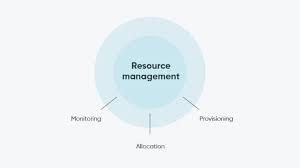The Importance of Resources in Today’s World
In our modern society, the concept of resources plays a crucial role in shaping economies, societies, and individual lives. Resources are the fundamental building blocks that support human civilization and drive progress in various fields. From natural resources like water and minerals to human resources such as knowledge and skills, the availability and management of resources have a profound impact on our daily lives.
Natural Resources
Natural resources are gifts of nature that are essential for sustaining life on Earth. These include water, air, forests, minerals, and energy sources like oil and gas. The responsible utilization of natural resources is vital for environmental sustainability and ensuring a habitable planet for future generations.
Human Resources
Human resources refer to the talents, skills, knowledge, and abilities possessed by individuals. In today’s knowledge-based economy, human capital is recognized as a key resource for driving innovation, productivity, and economic growth. Investing in education and training helps harness the potential of human resources for personal development and societal advancement.
Financial Resources
Financial resources encompass money and assets that enable individuals and organizations to meet their needs and pursue opportunities. Access to financial resources is essential for economic stability, investment in infrastructure, entrepreneurship, and poverty alleviation. Effective financial management is crucial for long-term sustainability and growth.
Technological Resources
Technological resources include tools, machinery, software, data systems, and other innovations that enhance productivity and efficiency. Advancements in technology have revolutionized industries across sectors, leading to increased automation, connectivity, and access to information. Leveraging technological resources can drive competitive advantage and facilitate progress in various fields.
Social Resources
Social resources pertain to relationships, networks, community support systems, cultural heritage, and social capital that contribute to individual well-being and collective resilience. Building strong social connections fosters collaboration, empathy, diversity appreciation, and mutual assistance during times of need.
In Conclusion
The effective management of diverse resources is essential for sustainable development and societal well-being. By recognizing the importance of natural resources, human capital, financial assets,
technological advancements,
and social connections,
we can create a more equitable,
resilient,
and prosperous world
for present
and future generations.
Let us strive
to protect,
nurture,
and responsibly utilize
our valuable
resources
for the betterment
of all.
5 Essential Tips for Optimizing Resource Management
- Prioritize your resources based on importance and urgency.
- Regularly assess and monitor your resource usage to avoid waste.
- Invest in tools and technologies that can help optimize resource allocation.
- Consider outsourcing non-core tasks to free up internal resources for strategic initiatives.
- Implement training programs to enhance the skills and knowledge of your team, maximizing resource potential.
Prioritize your resources based on importance and urgency.
When managing resources, it is crucial to prioritize them according to their significance and immediacy. By identifying which resources are most important for achieving your goals and which require immediate attention, you can allocate your time, energy, and assets effectively. Prioritizing resources based on importance and urgency ensures that critical tasks are addressed promptly, maximizing efficiency and productivity. This strategic approach helps in optimizing resource utilization and streamlining processes to achieve desired outcomes in a timely manner.
Regularly assess and monitor your resource usage to avoid waste.
Regularly assessing and monitoring your resource usage is a key tip to prevent waste and promote efficiency. By keeping track of how resources are being utilized, you can identify areas where improvements can be made, whether it’s reducing excess consumption, optimizing processes, or implementing sustainable practices. This proactive approach not only helps in conserving valuable resources but also contributes to cost savings and environmental preservation. By being mindful of your resource usage and making necessary adjustments, you can create a more sustainable and responsible impact on the world around you.
Invest in tools and technologies that can help optimize resource allocation.
Investing in tools and technologies that can help optimize resource allocation is a strategic decision that can yield significant benefits for organizations. By leveraging advanced software, data analytics, and automation systems, businesses can streamline processes, identify inefficiencies, and make informed decisions about resource allocation. This proactive approach not only enhances operational efficiency but also maximizes the utilization of available resources, ultimately leading to cost savings, improved productivity, and a competitive edge in today’s dynamic market environment. Embracing innovative tools for resource optimization empowers companies to adapt to changing demands, allocate resources more effectively, and drive sustainable growth in the long run.
Consider outsourcing non-core tasks to free up internal resources for strategic initiatives.
Consider outsourcing non-core tasks to free up internal resources for strategic initiatives. By delegating routine or specialized tasks to external service providers, organizations can focus their in-house talents and energies on high-impact projects that align with their core objectives. Outsourcing allows businesses to streamline operations, reduce costs, and improve efficiency by leveraging external expertise in areas that may not be central to their core competencies. This strategic approach enables companies to allocate resources more effectively, drive innovation, and stay competitive in a rapidly evolving marketplace.
Implement training programs to enhance the skills and knowledge of your team, maximizing resource potential.
By implementing training programs to enhance the skills and knowledge of your team, you can effectively maximize the potential of your resources. Investing in the continuous development of your employees not only boosts their individual capabilities but also strengthens the overall performance and efficiency of your organization. Through targeted training initiatives, you empower your team members to stay updated with industry trends, acquire new competencies, and adapt to evolving challenges. This strategic approach not only enriches the skill set of your workforce but also cultivates a culture of continuous learning and growth within your team, ultimately enhancing the value and productivity of your resources.

